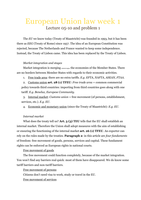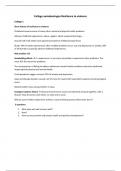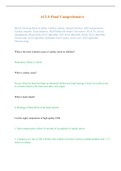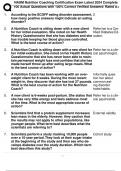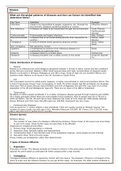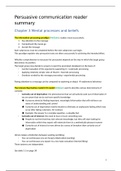Lecture 05-10 and problem 1
The EU we know today (Treaty of Maastricht) was founded in 1993, but it has been
there as EEG (Treaty of Rome) since 1957. The idea of an European Constitution was
rejected, because The Netherlands and France wanted to keep some independence.
Instead, the Treaty of Lisbon came. This idea has been replaced by the Treaty of Lisbon.
Market integration and stages
Market integration is merging samenvoegen the economies of the Member States. There
are no borders between Member States with regards to their economic activities.
1. Free trade area: there are no extra tariffs. E.g. EFTA, NAFTA, ASEAN, FTAA.
2. Customs union art. 28 (1) TFEU: Free trade area + common commercial
policy towards third countries: importing from third countries goes along with one
tariff. E.g. Benelux, Europese Community.
3. Internal market: Customs union + free movement (of persons, establishment,
services, etc.). E.g. EU.
4. Economic and monetary union (since the Treaty of Maastricht): E.g. EU.
Internal market
What does the treaty tell us? Art. 3 (3) TEU tells that the EU shall establish an
internal market. Therefore the Union shall adopt measures with the aim of establishing
or ensuring the functioning of the internal market art. 26 (1) TFEU. An exporter can
rely on the rules made by the treaties. Paragraph 2: in this article are four fundaments
of freedom: free movement of goods, persons, services and capital. These fundament
rights can be enforced as European rights in national courts.
Free movement of goods
The free movement could function completely, because of the market integration.
You won’t find any barriers real quick: most of them have disappeared. We do know some
tariff barriers and non-tariff barriers.
Free movement of persons
Citizens don’t need visa to work, study or travel in the EU.
Free movement of services


